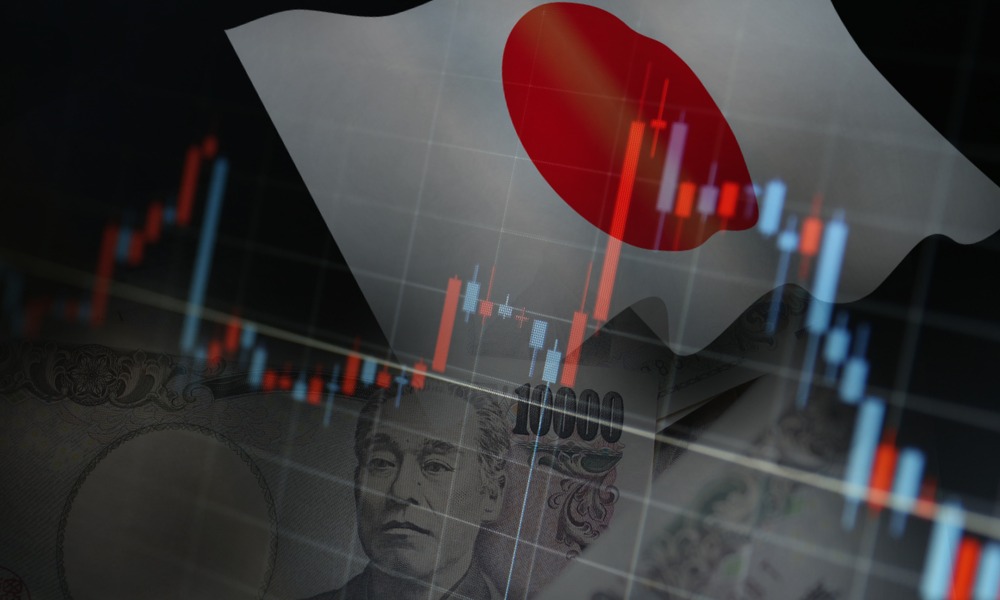Japan life insurers poised to up JBG purchases

Japanese life insurers are poised to increase their holdings of domestic sovereign bonds this year following the cessation of negative interest rates within the country.
With the onset of the new fiscal year this month, these companies are set to unveil their investment strategies, a matter of keen interest for global investors given the substantial combined assets of $2.6 trillion held by these insurers, often influencing market dynamics. Of particular scrutiny is whether they will repatriate funds, alongside expectations regarding the continued divestment of foreign debt hedged against yen appreciation due to associated costs, according to a Bloomberg report.
In January, many insurers deferred purchases of Japanese Government Bonds (JGBs) due to meagre yields. The Bank of Japan’s removal of sub-zero interest rates and its yield-curve control program in March, with further rate increases anticipated later in the year, has altered this landscape, Bloomberg reported. Notably, the yield on the 30-year sovereign securities, favoured by life insurers for meeting long-term obligations, has surged approximately 30 basis points this year to 1.92%, as per Bloomberg data.
“Yields on super-long securities are approaching 2%, which is a good level for life insurers to buy,” Ayako Sera, market strategist at Sumitomo Mitsui Trust Bank, told Bloomberg. “As yen-denominated securities offer a certain level of returns, they will probably continue to cut foreign bonds with currency hedges. However, since it’s hard to see more than 2% return from the Japanese bonds, they will also add some overseas debt without hedges.”
Earlier in January, Fukoku Mutual Life Insurance Co., Meiji Yasuda Life Insurance Co., and Japan Post Insurance Co. had announced a hold on purchasing domestic sovereign bonds until yields improved and amid uncertainties surrounding the BOJ’s monetary policy.
According to Bloomberg estimates utilising data from the Japan Securities Dealers Association, life and non-life insurers collectively acquired a net 4.4 trillion yen (US$29 billion) of Japanese bonds in the fiscal year ending March 31, contributing to a net purchase of 5.8 trillion yen the previous year. However, life insurers offloaded a net 2.4 trillion yen of foreign bonds in fiscal 2023 after a record sale of 14 trillion yen a year earlier, according to the latest Ministry of Finance data.
Read next: Japan’s earthquake makes insurers even more reluctant to buy bonds
The high costs associated with hedging have dissuaded life insurers from foreign debt in recent years. Despite the substantial yield gap between US and Japanese 10-year yields, the return from US notes turns negative after factoring in currency hedging costs, estimated at around 5.4%.
“Life insurers may also indicate purchases of foreign sovereign and corporate debt without currency hedges,” Eiichiro Miura, general manager of fixed-income investment at Nissay Asset Management Corp, told Bloomberg. “While the yield gap remains wide and the Federal Reserve is expected to deliver interest-rate cuts only at a gradual pace, the dollar-yen is unlikely to fall that much. The BOJ’s rate hike failed to boost the yen, which is also a reason for not having currency hedges.”
Despite a more than 7.9% depreciation of the yen against the dollar this year, it is anticipated to strengthen to 142 per dollar by year-end, compared to a forecast of 135 made at the end of last year, according to median estimates in Bloomberg surveys. Swap markets are predicting two Fed interest-rate cuts this year, in contrast to more than six cuts anticipated at the end of 2023.
Given the yen’s recent depreciation and expectations for a rebound later in the year, investing abroad presents challenges.
“Even though concerns about the pace of yen’s appreciation have eased, investors still see the yen strengthening,” Hideo Shimomura, senior portfolio manager at Fivestar Asset Management Co, told Bloomberg. “They have to buy overseas debt on dips in the dollar-yen exchange rate. It isn’t easy.”
Have something to say about this story? Let us know in the comments below.





